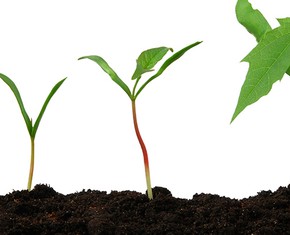The views expressed in our content reflect individual perspectives and do not represent the authoritative views of the Baha'i Faith.
We tend to think of refined people as those with good taste, subtlety, and wisdom rather than ignorance, crudeness and vulgarity. Do you see yourself as refined?
The Baha’i teachings frequently employ the word latafah—Arabic for “refinement”—especially in Baha’u’llah’s Most Holy Book:
Adopt ye such usages as are most in keeping with refinement. He, verily, desireth to see in you the manners of the inmates of Paradise in His mighty and most sublime Kingdom. Hold ye fast unto refinement under all conditions, that your eyes may be preserved from beholding what is repugnant both to your own selves and to the dwellers of Paradise. – Baha’u’llah, The Most Holy Book, p. 36.
While the word refinement has various connotations, it always retains the same essential application–a process whereby creation can become an ever more eloquent, beautiful expression of Divine attributes, whether these be manifest in a stone, in a human being, in social structure, or in the organization of the universe itself.
For example, in its unrefined form, a stone might hardly seem a fit expression of any quality other than tenacity. But if that stone be a diamond, when it becomes polished and cut it suddenly becomes capable of revealing a latent power to refract light in such beauteous arrays that it can symbolize refinement itself.
Likewise, Abdu’l-Baha noted that human beings can become lower than beasts if we pay no attention to our spiritual education. But through conscientious and willful attention to details–to our personal development goals, both mental and spiritual; to our hygiene; to our manners; to our actions; and to the acquisition of virtues like justice and kindness; we human beings can potentially become the most refined expression of Divine attributes among all created things
Social systems are likewise capable of becoming refined when they are created to serve and befit the needs and capacities of the individuals for whom they provide peace, security, shelter, order, vocations, and other essential needs.
Furthermore, social systems can become refined at each successive level of complexity, whether as a family, as a community, as a nation state, or as a global commonwealth. Indeed, the more complete and encompassing a social order becomes in exemplifying divine standards, the more refined it becomes as an expression of divine reality itself. However—society cannot become more complex, more encompassing and inclusive, and still remain sound and just unless it simultaneously attends to the needs of all the subsidiary structures within its domain, including families, communities, and territories.
In order to appreciate and understand more completely the overall importance of the concept of refinement, let’s examine, in this series of essays, its variable meanings and applications in relationships among human beings and material reality in general.
The Fundamental Concept of Refinement & Personal Development
In a note about translating the word latafah in Baha’u’llah’s Most Holy Book, the translators made the following observation about their own procedure for rendering latafah into its English equivalents:
The original Arabic word “latafah”, rendered here as “refinement,” has a wide range of meanings with both spiritual and physical implications, such as elegance, gracefulness, cleanliness, civility, politeness, gentleness, delicacy and graciousness, as well as being subtle, refined, sanctified and pure. In accordance with the context of the various passages where it occurs in the [Most Holy Book] it has been translated either as “refinement” or “cleanliness”. – p. 199.
Insofar as the hierarchy of material existence is concerned, we would thus logically consider latafah as a process of ascent—of something or of someone becoming ever more refined as an expression of existence. In the physical creation, if higher implies more complex, and if more complex implies an enhanced capacity to express spiritual or metaphysical attributes, then clearly one sense of the word refinement would be the process of becoming ever more complete in the number of attributes one manifests—and ever more refined or exquisite in the degree to which each particular attribute willfully expresses itself.
Yet, while all beings evolve through various stages of becoming more refined until, at last, each being reaches a stage of maturity, beings do not change in state. Nothing evolves into another category of existence. A plant cannot become an animal, for example. In this sense, the human being is capable of becoming ever more refined in state, but not of becoming something higher (i.e, more refined) than a human being. Furthermore, the Baha’i writings explicitly state that in material creation the human being is the highest expression of all created beings:
Man is the sum of Creation, and the Perfect Man is the expression of the complete thought of the Creator—the Word of God. – Abdu’l-Baha, Paris Talks, p. 51.
Thus Eve in the Adamic myth desires to ascend above Adam, to ascend to the level of the gods and angelic hosts – to transcend her state of existence – rather than simply to become an more refined Eve. Abdu’l-Baha emphasized in this connection that while human beings can become infinitely more refined within state, the human being or human soul, whether in its physical life or in the continuity of its existence in the “afterlife,” cannot ascend to another state:
When man reaches the noblest state in the world of humanity, then he can make further progress in the conditions of perfection, but not in state; for such states are limited, but the divine perfections are endless.
Both before and after putting off this material form, there is progress in perfection but not in state. So beings are consummated in perfect man. There is no other being higher than a perfect man. But man when he has reached this state can still make progress in perfections but not in state because there is no state higher than that of a perfect man to which he can transfer himself. He only progresses in the state of humanity, for the human perfections are infinite. Thus, however learned a man may be, we can imagine one more learned.
Hence, as the perfections of humanity are endless, man can also make progress in perfections after leaving this world. – Abdu’l-Baha, Some Answered Questions, newly revised edition, 237
Consequently, when we speak of the inherent goal of the human soul as attaining various degrees of refinement within state, we naturally resort to this useful metaphor of a physical ascent—a ladder or a chain—even though we understand that this ascent does not involve becoming something other than a human soul, whether that soul be expressing itself through the medium of a physical body or in the spiritual realm where a material body is not required.
















Comments
Sign in or create an account
Continue with Googleor